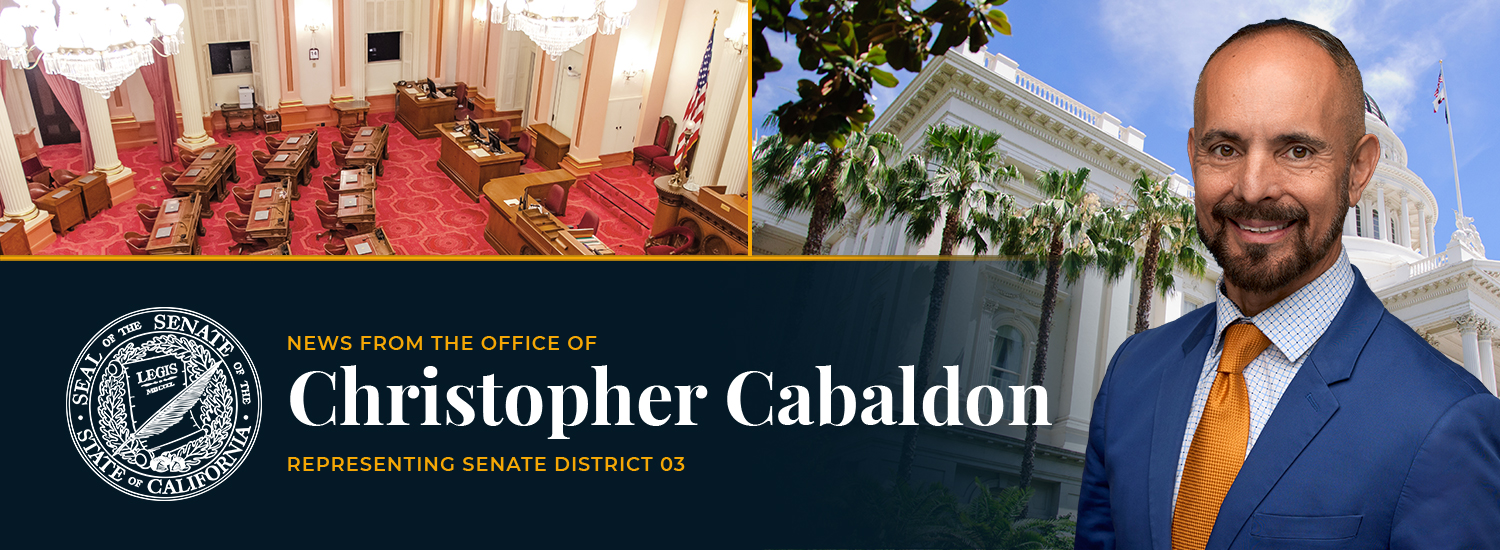
Legislature passes Cabaldon bill to cut fares on Uber, Lyft
SACRAMENTO— Senator Cabaldon’s legislation to lower the cost of fares on rideshare services such as Uber and Lyft cleared its final votes in the Senate and Assembly by overwhelming bipartisan margins and now goes to the governor’s desk. Governor Newsom previously has announced his support for Senate Bill 371 as part of a legislative package to benefit both riders and drivers.
SB 371 will reduce the cost of rideshare services for Californians by removing the requirement that rideshare drivers carry $1 million in coverage for accidents caused by other drivers who are uninsured or under-insured – a cost that today is passed on to riders in fees. The bill will lower the requirement to $60,000 in uninsured motorist coverage per individual and $300,000 per accident.
By comparison, taxis, buses, limos, and even Uber Black drivers are not required to carry uninsured motorist coverage.
“This will lead to a direct reduction in fares for Californians all over the state,” Sen. Cabaldon said.
SB 371 is a companion bill to AB 1340, by Assemblymembers Buffy Wicks and Marc Berman, that establishes a legal framework allowing rideshare drivers to organize, choose a union, and negotiate the terms and conditions of their work with the transportation network companies. The bill aims to improve drivers’ working conditions while complying with existing laws like Proposition 22, which defines drivers as independent contractors, not employees.
SB 371 is sponsored by Uber and Lyft, and AB 1340 is sponsored by the Service Employees International Union of California. The bills were moving along on separate tracks but were joined as a result of negotiations between the rideshare companies, SEIU, and the bills’ authors.
“My interest in carrying SB 371 was to lower fares for people who use rideshare for necessary transportation to their jobs, school, or medical appointments,” Senator Cabaldon said. “As we worked through the Legislative process, it became clear that without addressing the needs of drivers we would not be able to attract enough of them to meet demand, a shortage that is already contributing to higher fares. I’m happy to see the two bills joined as a benefit for both drivers and riders.”
According to Uber, the outsized insurance coverage currently required for rideshare vehicles has caused litigation abuse and higher costs for riders in California. In Los Angeles, for instance, 45 percent of a typical ride fare in May 2025 went to pay for government-mandated insurance. Drivers, meanwhile, have received an increasingly small share of the fare as a result.
Lyft has calculated that an average of $6 of each ride in California goes to insurance – double the national average. The insurance requirements for rideshare companies were established more than a decade ago when the industry was in its infancy. Ten years of claims data have demonstrated that they are far higher than needed.